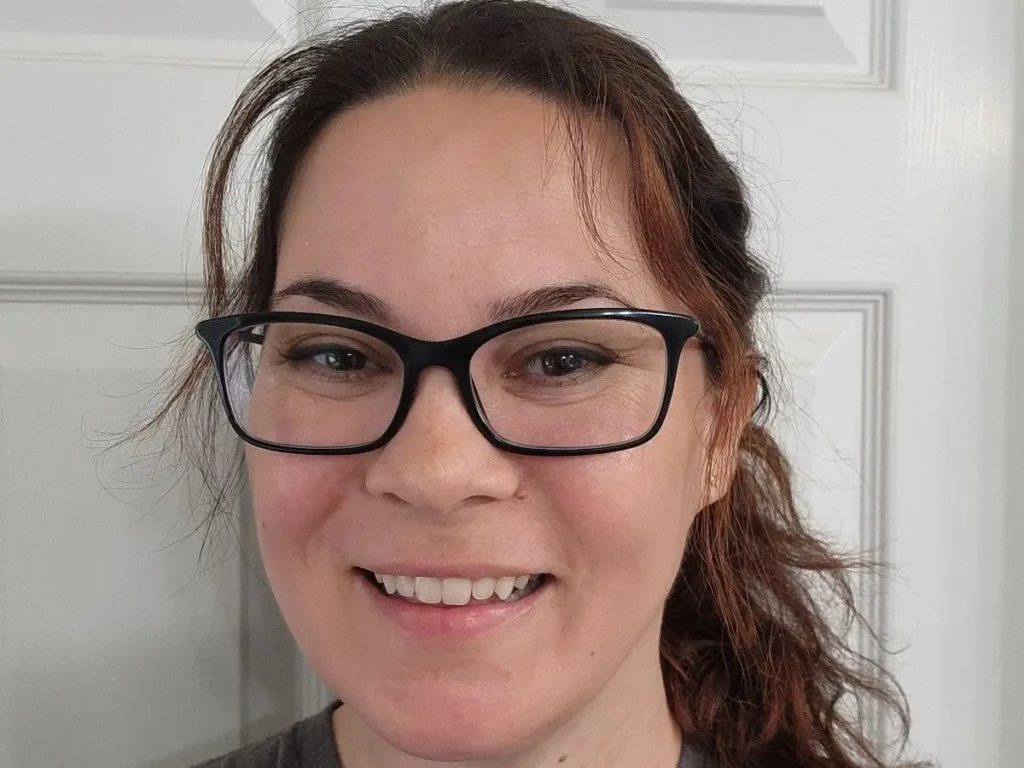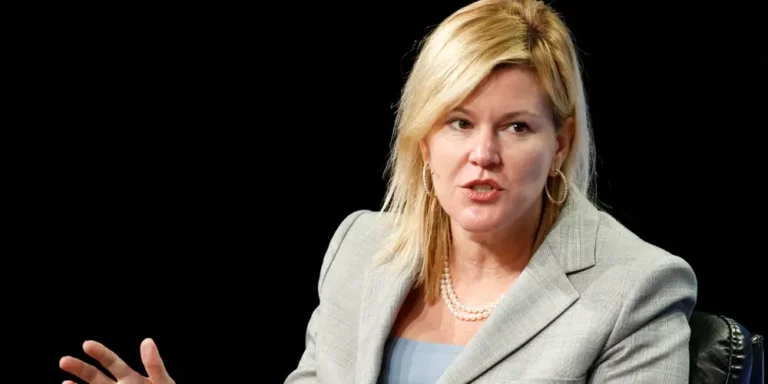Meet the 40-year-old freshmen: Millennials explain why going back to college is worth it for their paychecks and career — and why they might get more out of it than their Gen Z peers

It was never a good time for Laura Rodgers to go to college.
Now 40, Rodgers has been out of the workforce for 20 years raising her kids. She is ready to give herself another shot.
“I think there’s a lot of self-consciousness that comes with going back to school as an older adult,” Rodgers told us. She said she tries to remember that anyone who would judge her doesn’t matter.
Last fall, she enrolled at a local community college as an English major. She’s spending about $300 per semester for each in-person class, plus any additional course materials, which she can afford because of her husband’s income.
The flexible schedule allows her to be there for her kids, run errands, and do chores during the day. It hasn’t been easy going back to school at this point in her life, she said, and she’s found it especially challenging as a stay-at-home to enforce the boundaries she needs to complete her schoolwork.
“It’s kind of teaching my family, this is when I’m here, this is when I’m available, this is when I’m not, and even though I’m here, I need to study or do my homework,” Rodgers said.

Laura Rodgers went back to community college at 40
Rodgers is among a growing number of adults who are going back to college later in life. According to the National Center for Education Statistics, over one-third of undergraduates are 25 or older, and that proportion rises to nearly 44% for community colleges. Additionally, according to a recent paper from the National Bureau of Economic Research, about 70% of the increase in college completion between 1990 and 2010 can be attributed to the growing share of people getting degrees after their mid-twenties.
Rodgers, who said she’ll likely appreciate college more now that she’s older, is an example of the split in higher education sentiment across the generations: While younger Americans might not think they need a college degree to succeed in life, older adults continue to view it as a way to give themselves a second shot at advancing their careers, earning more money, and gaining more knowledge.
Pauline Corblet, an assistant professor of economics at New York University Abu Dhabi, told us that she and her colleagues have several hypotheses about why people choose to go to school later in life. These include insufficient money to pay for college right out of high school and, “especially for women, family constraints.”
“What happens when people have kids right after high school that would keep them from going to college? And then when the kids grow up, and they’re, say, young teenagers, then it becomes possible to go to college,” Corblet said.
While Rodgers said it could be “a little weird” being in a classroom full of students under 25, it’s also helped her realize that she can bring something new to the classroom that she might not have been able to do had she continued with college right out of high school.
“When I was 18 and I had first gone in, I just wanted to get through the classes,” Rodgers said. “Now, if I’m going to take the time and spend the money to go to this class, I really want to get something out of it. I feel like I try harder now that I’m older.”
“When I get to the end of my life,” she added, “I want to be able to say that I followed through on this thing that I wanted for myself.”
‘It was the best decision I made in my life’
Alexander Jones, 43, decided to go back to school when he was 30, and it helped him land a job in his desired field.
After graduating from high school, Jones briefly enrolled in some English courses at a university but dropped out, saying he didn’t have a focused mindset at the time. He spent the next decade working various retail jobs that allowed him to pay rent and afford basic necessities. But he said the work wasn’t personally or financially rewarding — so he set his sights on going back to school.
“I saw that I had no direction in life, I was utterly directionless. I haven’t dealt with who I am or where I am in life,” Jones told us.

Alexander Jones, 43, went back to school at 30 and landed a job in his desired field.
Jones completed a two-year certificate program in communications at a local college just over a decade ago. He said he was able to find a job right away at a media company. While he recognized he didn’t have the best grades in his class, he used the program as a chance to network and meet people in the industry, which helped him secure employment.
“It was the best decision I made in my life,” Jones said. “I feel a little bit more in control of even some of the stuff that’s not really controllable.”
Corblet said that oftentimes when people think about higher education, “we should take into account these late graduates because they have different returns” on their investments.
“It’s important to know how these college graduates integrate into the labor market,” she said, noting that later graduates might choose different jobs than their younger peers, which means they would have different types of contributions to their fields.
For example, had Jones chosen to stay enrolled in his English courses right out of high school, he might never have had the chance to pursue his skills in the media industry, which he didn’t consider when he was younger.
“Going to school for three or four years is so short a time,” Jones said. “So don’t be afraid of coming into the ball game late because three or four years is enough time to change your life.”
Still, going back to school isn’t for everyone. Josh Becker, 32, told us that he enrolled in college for one semester at age 20, but due to the student debt that accompanied his education, he dropped out and didn’t consider going back. He’s now looking for steady employment, but he doesn’t regret his decision.
“I don’t want someone to feel like they have to go to college to be successful because that sets them up for failure if they can’t go to college or can’t finish college,” Becker said.
He’s part of a growing trend of younger people choosing to skip a college degree. A recent report from Deloitte found that of 14,468 Gen Z and 8,373 millennials across 44 countries, a third of them chose to forego higher education primarily due to financial barriers and seeking jobs that don’t require college degrees.
‘You’re not too old to start over’
Despite some Gen Zers seeing little value in higher education, overall sentiment toward a postsecondary degree or certificate is still high.
According to a recent report from Gallup and the Lumina Foundation on the state of higher education in 2024, “adults’ interest in pursuing some form of higher education is at the highest level” the organizations ever recorded. Nearly all adults without a college degree said at least one type of credential was “extremely” or “very” valuable, and 59% of unenrolled adults considered enrolling in the past two years.
Matt, 37, is one of those adults.
After graduating from high school in 2005, Matt — who requested his last name be withheld for privacy — told us that he didn’t think college was the right fit for him, so he went straight into the workforce. Over the past 20 years, Matt has worked in the restaurant and retail industries, but he realized he wanted to give himself a shot and try something new.
He and his wife recently started applying to a local community college’s general studies program. Should he be accepted, he said he’s hopeful that as he begins his courses, he’ll figure out what types of courses pull him in most to help him narrow down his focus.
“I learned over the last 20 years that this life that I thought that I knew was going to turn out a certain way didn’t quite turn out anywhere near the way I had hoped it would,” Matt said. With encouragement from his wife, they both decided that it was not too late to learn new skills and “carve out a better path for ourselves going forward.'”
Matt acknowledged that going back to school at this point in his life is scary, but after working for two decades, he has a new perspective on higher education that he couldn’t see right out of high school.
“My wife, she’s been texting me little affirmations of motivational things every other day,” Matt said. “She sent this one to me the other day: You’re not too old to start over. You’re too old to keep doing something that’s not working.”






